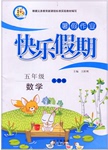题目内容
The New Year’s party, ______ we sang and danced until 10 p.m., was ____great success.
A. from which; /B. on which; /
C. for which; a D. in which; a
D
【解析】
试题分析:考查定语从句与冠词。句意:新年晚会取得成功,我们唱歌跳舞直到十点。 n which=where,相当于we sang and danced until 10p.m.in the new year's party 。a great success是固定搭配,故选D项。
考点 : 考查定语从句与冠词

练习册系列答案
 一诺书业暑假作业快乐假期云南美术出版社系列答案
一诺书业暑假作业快乐假期云南美术出版社系列答案
相关题目